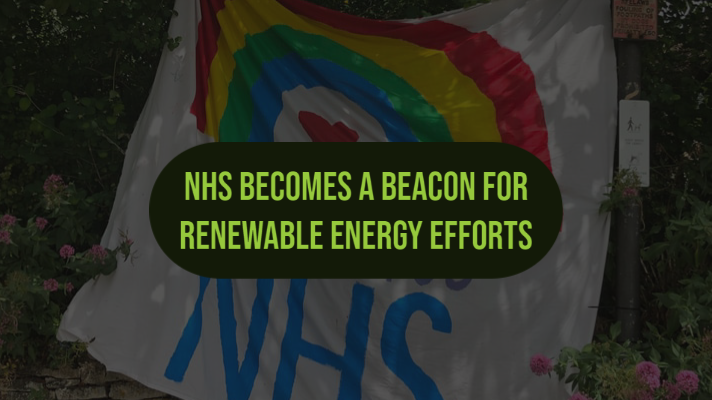NHS Renewable Energy: NHS Becomes a Beacon for Renewable Energy Efforts
A report last year unearthed that the UK health and care systems account for 5.4% of the UK’s carbon footprint. In response, the NHS Property Services (NHSPS) have claimed that through their green efforts, they helped cut down CO2 levels by over 40,000 tonnes in 2019. The NHSPS is responsible for 10% of the NHS’s estate.The NHS is becoming a beacon for renewable energy efforts.
In addition, there were many more efforts by the NHS to become more renewable; with LED lighting, energy efficiency improvements in buildings and renewable power across all settings. All of which has helped cut carbon emissions in over a tenth of the NHS estate.
The NHS Estate is Responsible for Over 3,500 Buildings
These include GP practices, health centres and hospitals. The other week, the NHS estate offered an update on its social responsibility progress, completing a switch to an all-renewable power programme. It also has aimed to make more of an effort to improve energy conservation. Since April 2020, all of the NHSPS properties are running on renewable electricity. This was due to energy contracts with British Gas and Corona Energy. This aims to offset 37,000 tonnes of CO2 every year.
LED Lighting was Improved in Over 40 Properties
This was all part of a £1.5 million investment last year. It has been claimed that this has saved 830 tonnes of CO2 annually. NHSPS aims to continue its energy services offsetting 130,000 tonnes of carbon. They spend around £50 million each year on utility services and want to replace oil boilers across the NHS estate.
The NHSPC have also established plant made Vegware cutlery which is biodegradable. They have also given 4,000 reusable stainless-steel bottles to staff with the aim to replace disposable plastic bottles. They will also be increasing the number of mixed recycling on sites.
The NHSPS have imposed these new measures as part of their firm’s Corporate Sustainability Framework. This was formed in 2018. This year, the NHS has strived to combat climate change with a greener NHS campaign.
An expert panel has laid down ways in which the NHS can reach its net-zero emissions goal before the 2050 deadline. They have considered where these changes can be imposed. Medical equipment and pharmaceutical supplies are just some of the ways supplies could cut CO2 emissions. Furthermore, technology could also be used to reduce the number of outpatient appointments. A report by the panel on this information is due to be published later this year. However, this could be significantly delayed due to the pandemic’s disruption.
Tags : Air Pollution, Carbon emissions, CO2, Employee Benefits, Energy conservation, Energy efficiency, Go Ultra Low, Green Business, LED lighting, NHS, NHSPS, Plastic bottles, Recycling, Renewable energy, Renewable power

